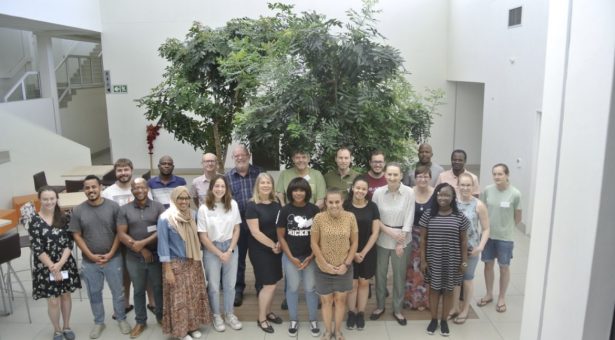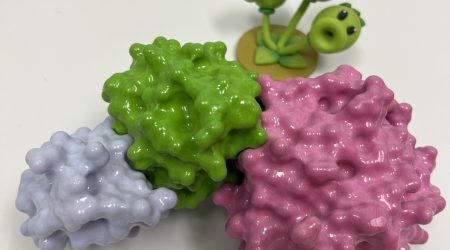Long-term commitment to enrich bioinformatic expertise in South Africa

Late last month, John Innes Centre researchers held the fourth Bioinformatics and Wheat Genomics workshop in Worcester, South Africa.
The workshop focused on providing computational knowledge exchange, for South African scientists as part of a long-term capacity building investment funded by the British High Commission Africa Science & Innovation Network.
Developing advanced skills in bioinformatics opens the door for local researchers to apply the latest genomic advances in wheat genetics in this region.
Co-organizer Dr Renée Prins, Founder and Director of CenGen (Pty) Ltd in South Africa, commented, “Having experts to guide our wheat scientists from being complete novices to being confident in using genomic approaches and bioinformatic tools never ceases to amaze me. The progress we made through this support continues to exceed my expectations”.
The origins of this workshop date back to 2017, when the first workshop in the South Africa series was held in Worcester, supported by the Newton Fund Researchers Link Workshop fund.
Subsequently, the UK Science and Innovation Network (South Africa) supported a team of five South Africans working in the wheat industry to visit leading wheat research centers in the UK. This aimed to support the revitalization of the wheat industry in South Africa by creating an opportunity to establish long-term collaborations and links between these centers of excellence and scientists in South Africa.
This activity identified a serious need for training opportunities to provide bioinformatics knowledge with a lasting impact as a priority need.
This is where Professor Diane Saunders and Dr. Burkhard Steuernagel from the John Innes Centre and Dr Rob Davey when working at the Earlham Institute were able to step in to provide support, and to build on the success of their 2017 workshop.
Co-organizer and trainer, Diane noted, “I continue to be impressed by the level of enthusiasm and dedication of the wheat researchers in South Africa. Seeing how far these scientists have developed since 2017, is amazing! And it is so exciting to see the real impact on so many agricultural projects in this region”.
A total of 21 researchers joined the 2023 workshop, representing industrial through to academic organizations.
The workshop provided structured training based around a self-directed practical that allowed participants to explore a scientific question highly relevant to many of their current research interests.
Burkhard the lead trainer for the latest workshop, explains how he found the experience, “These workshops are always a joy to run. It is extremely rewarding to share our passion and skills in bioinformatics with such a diverse and committed group of scientists”.
New member of the training team Dr Hugh Woolfenden from the John Innes Centre commented, “It has been extremely rewarding to be part of this long-term commitment to upskilling South African researchers in bioinformatics. Over the course of the week, it was incredible to see the participant’s gain so much confidence in their expanding bioinformatic skill set.”
This training team continue to support the participants remotely and aim to return to South Africa again to provide more training, continuing their long-term mission to expand bioinformatic capability in the region.
The first workshop in the series was supported by the 2017 Newton Fund Researchers Link Workshop fund, with subsequent workshops supported by the UK Science and Innovation Network, South Africa (UK SIN).



